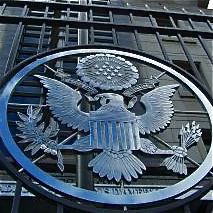Travel News
Protecting Yourself From Terrorism Threats When Traveling
 Last week the U.S. Department of State issued an advisory on travel to Europe.
Last week the U.S. Department of State issued an advisory on travel to Europe.
But the alert has many travelers and ex-pats wondering just how real the threat is, and what they can do, realistically, to protect themselves.
Peter recently chatted with former Secret Service Agent Christopher Falkenberg, founder of Insite Security, to get to the bottom of these questions and more.
Peter Greenberg: Let’s talk about the changing colors of security alerts. From your experience as a security expert, what impact does this kind of U.S. travel alert mean? I think it is fair to assume that they would not have issued it had there not been credible intelligence that there were some plots in the making.
Christopher Falkenberg: I’m sure credible, but not specific. That is the challenge the government always faces when issuing travel warnings. If the information is so specific that they can identify who the players are and what the targets are, they can eliminate the threat directly without advising the public. In this case the risk is diffuse and not specific enough to act upon, so what you have is a general advisory to the public to be more careful.
 Unfortunately, there is no specific advice on, how do you be more careful? How does one remain alert? What does it mean to use caution when traveling? So it’s a little too vague to be helpful, and not particularly meaningful as to how people who are going to continue on their trip.
Unfortunately, there is no specific advice on, how do you be more careful? How does one remain alert? What does it mean to use caution when traveling? So it’s a little too vague to be helpful, and not particularly meaningful as to how people who are going to continue on their trip.
PG: I have not a basic issue with the actual advisory itself, but how it is delivered. If we go back to 1988 after Pan Am Flight 103, when the State Department received a credible threat that a U.S. airline was going to be blown up over the Christmas holidays, it only shared this information with other State Department employees. And we all know what happened December 21, 1988 when Pan Am Flight 103 was blown up over Lockerbie. Since then, the number of State Department advisories has grown almost exponentially, almost to basically say, “OK, we’re going to tell you everything we know as fast as we know it, and scare you at the same time.”
There are like 108 different State Department advisories out there, and I understand there is a reason for it; I understand it is well-intentioned, but it is the delivery of them that makes me a little concerned as a traveler. If you read the State Department advisory for Indonesia, it says that Americans should be avoiding large crowds and buses. Well, Christopher, I live in Los Angeles, and I avoid large crowds and buses. At what point does common sense just need to take over?
CF: Common sense is the most valuable weapon anybody has in dealing with security issues both at home and abroad.
 The current policy of the State Department, which is to warn everybody about everything that is circulating there internally, arose not only out of Lockerbie, but also out of the 1998 bombings of the embassies in Kenya and Tanzania. The State Department is in a real jam as to what information they release. On the one hand, they don’t want to be caught with information that could have been operational. On the other hand, if the information is specific, it will either be acted upon by the military it will reveal the sources and methods by which the intelligence agency gathered the information. It is a real challenge. The essence of the advice is, travelers have to use common sense, think, and prepare: How am I going to respond if there is an emergency? What am I going to do? How am I going to be able to snap myself out of vacation mode and into survival mode? That’s the key element of common sense that will help travelers deal with an unlikely emergency. That’s what we focus on training at Insite Security when we talk to clients who have travel coming up. How are you going to switch from cocktail party mode or tourist mode and turn on a dime to survival or emergency mode?
The current policy of the State Department, which is to warn everybody about everything that is circulating there internally, arose not only out of Lockerbie, but also out of the 1998 bombings of the embassies in Kenya and Tanzania. The State Department is in a real jam as to what information they release. On the one hand, they don’t want to be caught with information that could have been operational. On the other hand, if the information is specific, it will either be acted upon by the military it will reveal the sources and methods by which the intelligence agency gathered the information. It is a real challenge. The essence of the advice is, travelers have to use common sense, think, and prepare: How am I going to respond if there is an emergency? What am I going to do? How am I going to be able to snap myself out of vacation mode and into survival mode? That’s the key element of common sense that will help travelers deal with an unlikely emergency. That’s what we focus on training at Insite Security when we talk to clients who have travel coming up. How are you going to switch from cocktail party mode or tourist mode and turn on a dime to survival or emergency mode?
PG: I was doing The Early Show with Harry Smith, and he if I were in a foreign country, and there was some political unrest, should I immediately go to the American Embassy? I said, quite honestly, that is the last place I would go. I would go to the Canadian Embassy, or the British Embassy, or the Australian Embassy, because the U.S. Embassy is the first place that shuts down and goes into bunker mode. I didn’t make a lot of friends at the State Department that day, but that’s been my experience when I travel. And that’s me using my common sense.
CF: I agree it doesn’t make sense to go to an established target location. Although, I don’t know how much safe haven the Brits and Canadians are going to offer you as an American.
 PG: I’ll tell you this: The Canadians were hiding out a lot of the Americans in Kuwait; the Canadians were hiding out a lot of the Americans in Iran. They’ve done a great job. And I’m not there to promote the Canadians. I’m just saying, as a matter of historical fact, the first place that gets shuttered and barricaded, and the gates get closed, is the American Embassy.
PG: I’ll tell you this: The Canadians were hiding out a lot of the Americans in Kuwait; the Canadians were hiding out a lot of the Americans in Iran. They’ve done a great job. And I’m not there to promote the Canadians. I’m just saying, as a matter of historical fact, the first place that gets shuttered and barricaded, and the gates get closed, is the American Embassy.
CF: Well, look, that’s the focal point of so many of the threats in difficult situations. I think the answer is, when an incipient terrorist attack seems to be on the horizon, or the security situation has really deteriorated, travelers should alter their plans to reduce the most likely targeting opportunities, and to the extent that you can. One issue is airports. Airports are target- rich environments. You have to go to the airport when you travel, but you can change your behavior at the airport to reduce the likelihood that you will get caught in an attack. When you get to the airport, clear security right away. Though there have been a lot of attacks at airports, they have always been on the unsterile, or unsafe side of the metal detector. When you get to the airport, check in immediately, get rid of your bags immediately, and get onto the safe side of the magnetometers.
PG: You know that is really great advice, because you’re absolutely right. Historically, that is exactly where it has happened.
CF: There is usually armed security to interdict an attacker between the secure and unsecured sides. Now I have been talking about this for a week or so since the alert came out, and I got a very unhappy email from a group of duty-free vendors saying, you’re scaring all our clients away. That may be true, but the place to do shopping is on the area close to the gates, not in the area which is unsecured.
Then number two, generally when you’re in foreign countries in disturbed areas, avoid areas which are attractive targets, which are indicated as being Western focused.
To listen to the interview, click the “Play” button on our homepage. Or sign up to be an Insider to listen to the podcast anytime, on demand.
Related links on PeterGreenberg.com:
- France Becomes Latest to Issue Travel Warning As European Tourism Falls
- European Travel Warnings Issued as Terrorism & Security Concerns Grow
- Travel Safety & Security section
- Terrorism & Security section
- Europeans Uncover Terrorist Plot Targeting Tourists
- How Safe Is My Hotel? An In-Depth Look at Hotel Security












